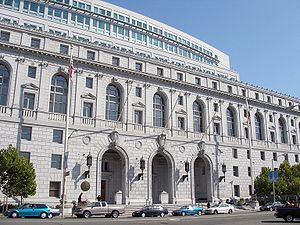The case of Hatai v. Department of Transportation et. al highlights that employees in discrimination trials should be aware that California courts are prepared to reject an employee’s attempt to use “me too” evidence. The “me too” doctrine allows an employee to present evidence of discrimination not only against themselves but also against other employees who have suffered similar treatment.
FACTS OF THE CASE

Kenneth Hatai, who was of Japanese and Asian ancestry, was employed as a senior traffic engineer by the Department of Transportation (Caltrans). Sameer Haddadeen, who was of Arab ancestry, was Mr Hatai’s supervisor. Throughout his employment, Mr. Hatai complained of Mr. Haddadeen’s management style. However, during meetings with Mr. Haddadeen’s supervisors, Mr. Hatai did not specifically complain that Mr. Haddadeen discriminated against him because of his Japanese and Asian heritage.
Following the deterioration of Mr. Hatai’s performance at work, he received numerous disciplinary warning letters from Mr. Haddadeen. Mr. Hatai then sued Caltrans under the California Fair Employment and Housing Act (FEHA) for discrimination based on his Japanese and Asian ancestry.
Before trial, Caltrans filed an in limine motion to exclude evidence that Mr. Haddadeen had discriminated against employees of non-Asian ancestry, arguing that discrimination against anyone of non-Arab ancestry was not the claim that Mr. Hatai brought in his lawsuit. Mr. Hatai objected, stating that his claim was that Mr. Haddadeen was discriminatory towards all employees who were not of Arab ancestry. The trial court granted Caltrans’ motion and the jury returned a verdict in favour of Caltrans.
Mr. Hatai appealed.
“ME TOO” EVIDENCE EXCLUDED
In short, the California Court of Appeal affirmed the trial court’s decision.
Mr. Hatai’s argument that he should have been allowed to present evidence that Mr. Haddadeen discriminated against anyone who was not of Arab ancestry was rejected on the grounds that it was too broad. Mr. Hatai’s claim was that he was subjected to discrimination because of his Japanese and Asian ancestry, not because of favoritism toward employees of Arab descent. The “me too” doctrine allowed Mr. Hatai to submit evidence that Mr. Haddadeen subjected other Caltrans employees of Japanese and Asian ancestry to a similar discrimination. However, the Court stressed that the “me too” doctrine did not permit Mr. Hatai to submit evidence of discrimination against Caltrans employees outside his protected class.
As a result, the Court concluded that the trail court correctly excluded evidence that Mr. Haddadeen discriminated against Caltrans employees of non-Asian ancestry.
PRESENTING “ME TOO” EVIDENCE
While this decision is favorable to employers, the result was partly due to Mr. Hatai’s failure to specifically plead, from the outset, that Mr. Haddadeen had discriminated against employees who were not of Arab ancestry, as opposed to employees of Asian ancestry.
This case should serve as a reminder to employees bringing discriminatory claims that, in California, “me too” evidence is usually limited to individuals of the same protected category as the employee. However, employees should note that in a favoritism of kind case, they may be able to present “me too” evidence on a broader scale.



